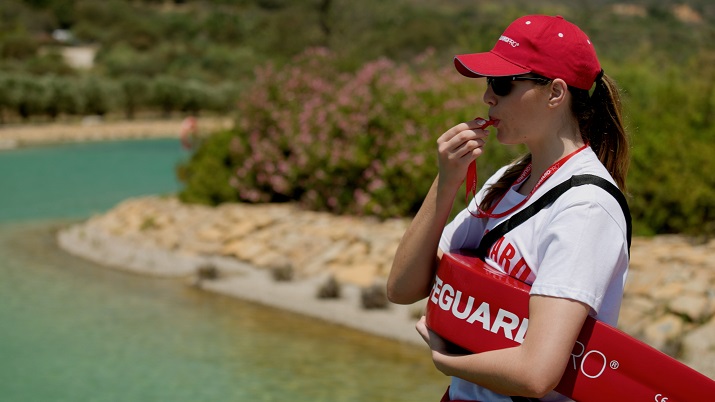Winter, often associated with cozy fires and snowflakes, might not be the first season that comes to mind when you think about lifeguarding. However, for a dedicated lifeguard instructor, the chill in the air doesn’t deter them from their mission.
In this article, we will explore the unique and important career of a lifeguard instructor in winter.
The Unconventional Path
While summer may be the peak season for lifeguarding, the career of a lifeguard instructor in winter is far from conventional. Instead of bustling beaches and crowded pools, these unsung heroes often find themselves in indoor facilities, where the demand for lifeguard training remains steady year-round.
Navigating Indoor Pools
One of the challenges faced by winter lifeguard instructors is adapting to indoor pools. Unlike their summer counterparts who watch over expansive outdoor waters, indoor pools present a different set of dynamics. Instructors must teach students how to handle situations like poolside slips and indoor water hazards.
The Importance of Preparedness
Winter lifeguard instructors emphasize the importance of preparedness. They teach their students to anticipate emergencies that might not be as common during the summer months. Cold-related injuries and illnesses, such as hypothermia, become more relevant, making it crucial for lifeguard classes near me to include comprehensive winter-specific training.
Braving the Elements
Lifeguard instructors working in winter must brave the elements themselves. Whether it’s shoveling snow to clear pathways or dealing with icy surfaces, they are committed to ensuring that lifeguard certification candidates are well-prepared for any situation, come rain, shine, or snow.
Adapting to Low Visibility
Winter’s shorter days and reduced natural light can make visibility an issue. Instructors teach their students to adapt to these conditions, emphasizing the importance of clear communication and vigilance. During lifeguard training in California, they stress the use of appropriate lighting and safety equipment.
Diverse Student Demographics
Winter lifeguard instructors often encounter a diverse range of students. While summer lifeguard certification classes typically attract younger individuals looking for seasonal employment, winter classes can include people of all ages seeking valuable skills for year-round job opportunities.
Expanding Career Opportunities
One of the advantages of pursuing a career as a lifeguard instructor in winter is the opportunity to expand one’s career horizons. Instructors often find themselves sought after by schools, community centers, and fitness facilities that offer aquatic programs year-round. This diversification can lead to a stable and rewarding career path.
Resilience and Adaptability
Winter lifeguard instructors develop a unique sense of resilience and adaptability. They must adjust their teaching methods and techniques to suit the season’s challenges. This adaptability is not only an asset in their professional lives but also a valuable life skill they pass on to their students.
The Reward of Saving Lives
While the scenarios faced by winter lifeguards may differ from those of their summer counterparts, the ultimate goal remains the same: saving lives. Instructors take immense pride in knowing that they are equipping their students with the skills and knowledge needed to prevent accidents and respond effectively to emergencies, regardless of the season.
The Role of the American Lifeguard Association
In the world of lifeguarding, organizations like the American Lifeguard Association play a pivotal role. They provide the necessary resources, guidelines, and certifications for instructors and lifeguards alike. Winter lifeguard instructors rely on the association’s support to ensure their training programs meet the highest standards.
In conclusion, the career of a lifeguard instructor in winter may not be the most conventional, but it is undeniably important. These dedicated individuals work tirelessly to prepare their students for year-round aquatic safety, emphasizing adaptability, resilience, and the importance of being ready for any situation.
Whether teaching lifeguard classes near me or training aspiring lifeguards in other parts of the country, these instructors are the unsung heroes of the winter season, ensuring that the waters remain safe even when the temperatures drop.
And with the support of organizations like the American Lifeguard Association (ALA), their vital work continues to make a difference in communities across the nation.
